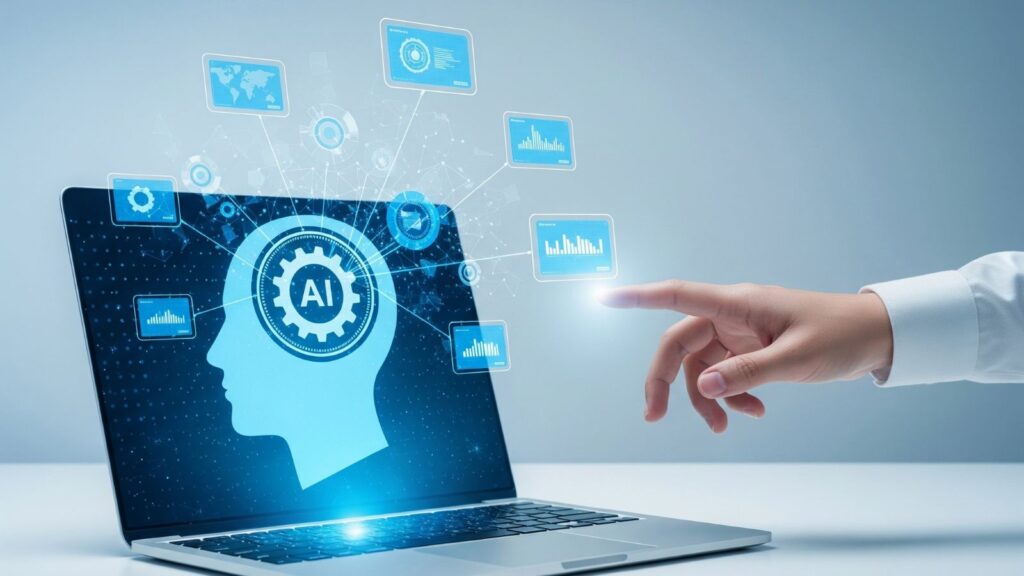Beyond Swipes and Guesswork
Dating apps once relied on instinct and chance — a few photos, a quick bio, and endless swiping until something clicked. But today, artificial intelligence has quietly rewritten the rules of attraction. Algorithms now claim to know us better than we know ourselves, analyzing every like, pause, and message to predict who we might truly connect with.
In this new digital era, love is no longer left to coincidence. It’s calculated, refined, and optimized — yet somehow, more personal than ever.
The Algorithm of Compatibility
Behind every match notification lies an intricate web of data. Modern platforms use machine learning to study user behavior: who we text back, how fast we reply, even the tone of our conversations. Over time, the system learns what we value — humor, ambition, empathy — and prioritizes people who reflect that emotional code.
This isn’t about controlling attraction, but decoding it. The best algorithms don’t just match profiles; they interpret personalities. They look at subtle clues in our digital patterns and create pairings that feel effortless — the kind that make us say, “How did they know?”
Where AI Meets Intuition
The goal of AI-driven dating isn’t to replace human chemistry, but to enhance it. Imagine your playlist, your favorite memes, and your texting rhythm — all quietly shaping your digital “dating DNA.” When technology is designed with empathy, it can bring us closer to people who actually understand us.
To find gay sex near you, it’s better to use artificial intelligence to connect people based on deeper compatibility. Instead of random matches, these systems study shared humor, communication habits, and emotional cues to suggest partners who truly resonate. It’s matchmaking, reimagined for people who value connection over convenience.
AI and the Art of Conversation
Artificial intelligence isn’t just about pairing profiles — it’s changing how we talk. Chatbots and natural language models now help users start conversations, break the ice, or craft messages that sound authentic. Some dating platforms even use tone analysis to detect emotional compatibility during chats.
But here’s the fine line: automation can help, yet it should never replace the raw, imperfect magic of human interaction. The best connections come from vulnerability — a truth that no algorithm can fully replicate.
Privacy in the Age of Smart Dating
Of course, more data means more questions. Who owns your dating history? What happens to your emotional analytics? The same algorithms that recommend potential partners also learn intimate details about your personality, preferences, and habits.
Responsible dating platforms are now prioritizing encryption, consent-based profiling, and transparent AI design. The goal isn’t to exploit your data, but to protect it — so that technology can empower connection, not commodify it.
For users, awareness is key. Always check how apps handle data, and be mindful of what you share — not just photos, but emotions. AI may guide you toward love, but privacy ensures you stay in control of it.
A Glimpse into the Future of Love
What’s next? As AI evolves, we might see virtual “relationship coaches” that analyze patterns between two users, suggesting how to communicate better or resolve misunderstandings. Augmented reality could let you meet someone virtually before a real-world date. And predictive models might one day sense emotional burnout and recommend taking a break — for your heart’s sake.
Technology can’t create love, but it can clear the noise around it. In a world filled with endless choices, AI helps us focus on what truly matters — people who reflect who we are and what we value.
Conclusion: When Data Meets Desire
Dating has always been a mix of intuition and timing. AI doesn’t eliminate that mystery — it simply helps guide it. By learning from our digital footprints, it gives us a chance to meet people who feel familiar from the first message.
So, while algorithms may write the introduction, the story that follows is still ours to create. And in that blend of data and desire, the future of dating feels not colder — but somehow, more human.


More Stories
Basketball Handicap Betting Explained
Why Social Platforms Are Redefining How We Play, Compete, and Engage
Maximize Playtime: Strategic Approaches for Long Casino Sessions